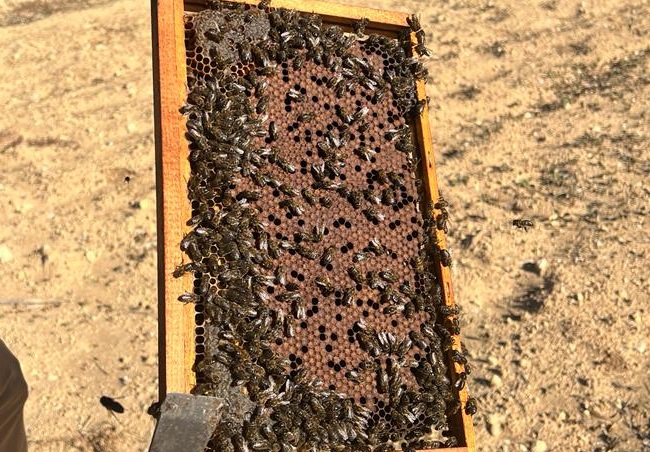Researchers at Queen Mary University have made a groundbreaking discovery showcasing bees’ capacity for complex social learning, a trait previously believed to be exclusive to humans. In a pioneering experiment, bumblebees not only learned to tackle intricate problems but also transmitted this knowledge to their peers, marking the first instance of such behavior observed in insects.
The experiment involved enticing bees with a sugar water reward hidden within a two-step puzzle. Initially deemed challenging for bees to solve independently, the puzzle required them to navigate a sequence involving a blue lever obstructing access to a red lever, which ultimately led to the reward. Dr. Alice Bridges, a key researcher, noted the complexity of the task for bees.
To facilitate learning, some bees were trained with rewards for each step, while others observed without direct rewards. Remarkably, untrained bees successfully learned the puzzle by observing their trained counterparts, showcasing a form of social transmission of knowledge.
This behavior, more intricate than individual learning, hints at a form of bee “culture” and suggests the existence of cumulative culture within the animal kingdom. Professor Lars Chittka, another researcher involved, drew parallels with human cultural evolution, highlighting the significance of learning from previous generations.
Published in Nature, this study challenges the notion that only humans possess the ability for socially transmitted complex behavior. It echoes recent findings in Nature Human Behaviour, where chimpanzees exhibited similar social learning capabilities in solving complex puzzles. These discoveries redefine our understanding of animal cognition and the evolution of culture beyond the human species.


